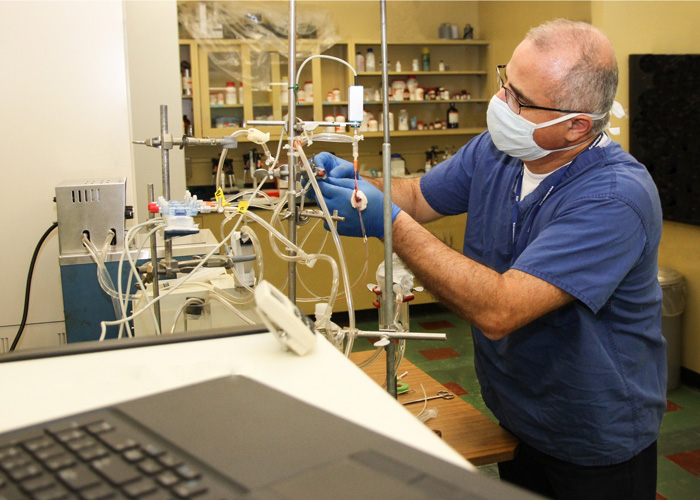Kondelaji Dissertation Abstract
Computational and Experimental Studies on Vascular Targeted Plasmonic Thermal Ablation of Solid Tumors
Dissertation Date: March 15, 2024
Currently, chemotherapy, radiotherapy, surgery, and local ablative therapies are the primary techniques for cancer treatment. However, often local ablative methods just delay the relapse of the cancer and critically depend on the physician’s skills to achieve tumor control and reduce off-target treatment effects. Gold nanoparticle mediated photothermal ablation (PTA) has illustrated promising results in animal studies in the past few years. In this method low energy near infrared (NIR) laser illumination is delivered to the unhealthy tissue pretreated with nanoparticles designed to absorb NIR light. NIR plasmonic resonance bearing gold nanoparticles with enhanced optical absorption can be targeted to tumor and increase thermal energy delivery to the tumor, while sparing the healthy tissue. Image-guided PTA for precise positioning of laser source can potentially decrease the off-target damage of the treatment. Despite variety of proposed geometry and material compositions for gold-based nanoparticles, and success in the animal studies, the safety and tumor specific thermal therapy delivery of these nanoparticles in larger spatial scales encountered in human subjects have not been fully studied. Also, the germline inherited characteristics in tumor vasculature which affect nanoparticle delivery and distribution and the effects of tumor microenvironment have not been considered in treatment with PTA methods. In this study, we have designed and exploited computational and experimental models to investigate and understand the effect of tumor vascular microenvironment on the treatment outcome. Moreover, we will target the notch-DLL4 overexpression in the tumor microenvironment by nanoparticles to possibly increase the efficacy of nanoparticle distribution.
Return to Dissertation Schedule


